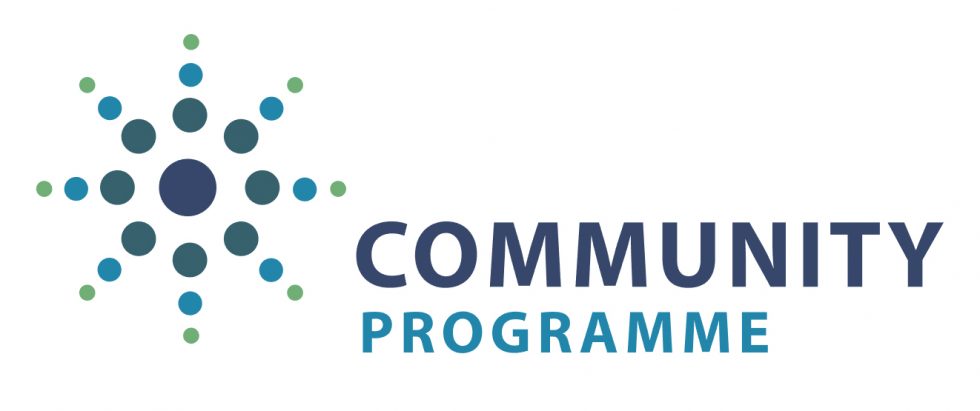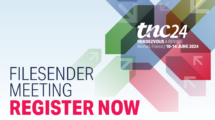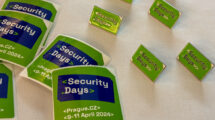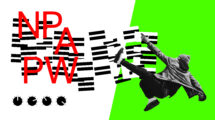A world of ideas by the GÉANT Community Programme
Our community of internet researchers continuously generates ideas or, as we like to call them, “wild things”. Such ideas can evolve further if supported by like-minded experts through the creation of a GÉANT task force or special interest group. Within our community, the best-known such idea is almost certainly eduroam, which was sparked during a meeting of the old Task Force on Mobility. To help the community develop the next generation of great ideas, GÉANT supports the GEANT Community Programme.
What exactly is the Community Programme? It is the group of grassroots volunteers and experts from NRENs, user organisations, research institutions, commercial and industrial sectors. They meet to form task forces (TFs) and special interest groups (SIGs) to provide a framework to share information and best practices and to discuss possible innovations and further development of services. They also aim to design and progress collaborative work between individuals from multiple organisations with the objective of improving services, expertise and understanding in the NREN community.
You might not know that these groups are OPEN to everyone, so if you are interested in taking part, just reach out to us!
Contact us at: community@lists.geant.org to find out more.
Here’s a brief overview of what our groups have been up to in the past year.
TF-CSIRT meets three times a year and 2019’s locations are: Tallinn, Luxembourg and Cyprus. As well as sharing information on practical topics such as malware analysis, APIs for security work and forensic lab work, the meetings included presentations and discussions on EU incident response capabilities, CSIRT maturity and CSIRT training networks. TF-CSIRT has also been evaluating its strategy, which has now been in place for two years (https://tf-csirt.org/2019/03/29/tf-csirt-strategy-two-years-on/).
TRANSITS materials form a key part of the TF-CSIRT portfolio and are now being made available under a Creative Commons license. The first batch of these materials is now available on the TF-CSIRT website and all other modules will be made available soon. TRANSITS provides affordable, high-quality training to both new and experienced computer security incident response team (CSIRT) personnel, as well as individuals with a bona-fide interest in establishing a CSIRT.
During its latest meeting, SIG-Marcomms focussed on crisis management and communications, with a report from the second GÉANT crisis management workshop: CLAW 2018. Designating clear roles and responsibilities is an important step towards successful crisis management. Belnet, SURFnet and Jisc presented lessons learned from CLAW practical exercises, real crises and real plans. The common thread? Communications support and regular practice are necessary to transform crisis management from highly stressful circumstances into situations and tasks that everyone can take in their stride.
The SIG on Management of Services Portfolio (SIG-MSP) stressed the importance of data transfer in the context of the European Open Science Cloud and more widely in the Open Science policy national initiatives. “Let’s expand R&E networks to the final frontier: space, and bring this to the next level”, said Lars Kierkegaard presenting DeiC plans to launch Satcom services for researchers in remote areas. At the SIG’s latest meeting, DeiC announced the launch of an open call for collaboration to investigate the use of satellite communications to support researchers around the globe.
The Special Interest Group on Next Generation Networks (SIG-NGN) endeavours to create an open forum where experts from the community exchange information, knowledge, ideas and best practices about specific technical areas relevant to the research and education networking community. Recently the focus has been on using commodity (Whitebox) hardware to support a desegregated network infrastructure for both the IP and optical layers of the network.
In the latest SIG-NOC meeting, participants discussed the challenges related to NOC recruitment, were introduced to the MD-VPN Service Inventory tool and listened to lessons learned from CARNET’s Cloud managed school network project. Campus Network as a Service (CNaaS) will be offered by NRENs to their connected institutions, standardising network architecture, tools and processes in use. The Slovenian NOC introduced the WLAN-2020 project that is projecting Slovenia to the highest levels in the implementation of digital education. It also introduced ARNES Automator, an application developed to help the ARNES NOC to manage and operate the network and RIPE NCC Routing Information System (RIS), which collects and makes publicly available Internet routing data from all over the world.
In April this year, the SIG on Information Security Management (SIG-ISM) joined forces with the WISE community (Wise Information Security for Collaborating e-Infrastructures) to discuss risk assessment and management, security baselining, training and awareness, crisis management and information exchange. The two security collaborations were established back in 2015. Four years on they have agreed to collaborate more closely by forming a joint working group on Security Communications Challenge Coordination. They will also continue working together on an inventory for Security Officers and plan joint meetings at least once a year. The next SIG-ISM meeting is likely to take place in Croatia at the end of October.
Engage with the community at our annual conference TNC19 16-20 June 2019:
- SIG-MarComms Sunday, 16 June 2019
- NRENs and educational technology Monday, 17 June 2019
- SIG-TNE & TF-RED Wednesday evening, 19 June 2019
- SIG-ISM will attend the Security Day, Thursday, 20 June 2019
We have a broad portfolio of groups. Join us today to shape the world of research and education. We look forward to collaborating with you!
For more information contact: community@lists.geant.org








Add Comment